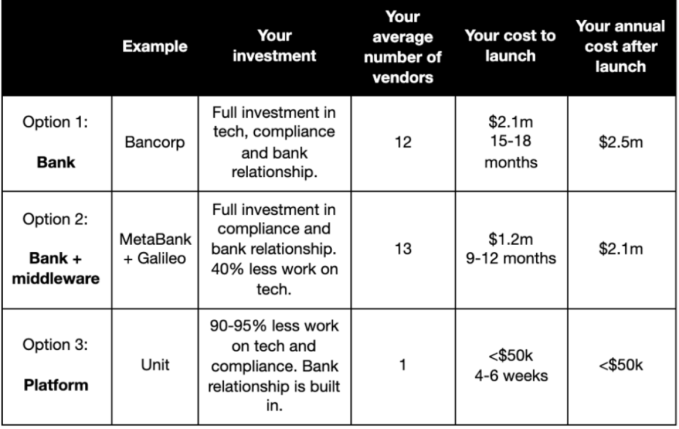While the enterprise world likes to talk about “big data”, that term belies the real state of how data exists for many organizations: the truth of the matter is that it’s often very fragmented, living in different places and on different systems, making the concept of analysing and using it in a single, effective way a huge challenge.
Today, one of the big up-and-coming startups that has built a platform to get around that predicament is announcing a significant round of funding, a sign of the demand for its services and its success so far in executing on that.
SingleStore, which provides a SQL-based platform to help enterprises manage, parse and use data that lives in silos across multiple cloud and on-premise environments — a key piece of work needed to run applications in risk, fraud prevention, customer user experience, real-time reporting and real-time insights, fast dashboards, data warehouse augmentation, modernization for data warehouses and data architectures and faster insights — has picked up $80 million in funding, a Series E round that brings in new strategic investors alongside its existing list of backers.
The round is being led by Insight Partners, with new backers Dell Technologies Capital, Hercules Capital; and previous backers Accel, Anchorage, Glynn Capital, GV (formerly Google Ventures) and Rev IV also participating.
Alongside the investment, SingleStore is formally announcing a new partnership with analytics powerhouse SAS. I say “formally” because they two have been working together already and it’s resulted in “tremendous uptake,” CEO Raj Verma said in an interview over email.
Verma added that the round came out of inbound interest, not its own fundraising efforts, and as such, it brings the total amount of cash it has on hand to $140 million. The gives the startup money to play with not only to invest in hiring, R&D and business development, but potentially also M&A, given that the market right now seems to be in a period of consolidation.
Verma said the valuation is a “significant upround” compared to its Series D in 2018 but didn’t disclose the figure. PitchBook notes that at the time it was valued at $270 million post-money.
When I last spoke with the startup in May of this year — when it announced a debt facility of $50 million — it was not called SingleStore; it was MemSQL. The company rebranded at the end of October to the new name, but Verma said that the change was a long time in the planning.
“The name change is one of the first conversations I had when I got here,” he said about when he joined the company in 2019 (he’s been there for about 16 months). “The [former] name didn’t exactly flow off the tongue and we found that it no longer suited us, we found ourselves in a tiny shoebox of an offering, in saying our name is MemSQL we were telling our prospects to think of us as in-memory and SQL. SQL we didn’t have a problem with but we had outgrown in-memory years ago. That was really only 5% of our current revenues.”
He also mentioned the hang up many have with in-memory database implementations: they tend to be expensive. “So this implied high TCO, which couldn’t have been further from the truth,” he said. “Typically we are ⅕-⅛ the cost of what a competitive product would be to implement. We were doing ourselves a disservice with prospects and buyers.”
The company liked the name SingleStore because it is based a conceptual idea of its proprietary technology. “We wanted a name that could be a verb. Down the road we hope that when someone asks large enterprises what they do with their data, they will say that they ‘SingleStore It!’ That is the vision. The north star is that we can do all types of data without workload segmentation,” he said.
That effort is being done at a time when there is more competition than ever before in the space. Others also providing tools to manage and run analytics and other work on big data sets include Amazon, Microsoft, Snowflake, PostgreSQL, MySQL and more.
SingleStore is not disclosing any metrics on its growth at the moment but says it has thousands of enterprise customers. Some of the more recent names it’s disclosed include GE, IEX Cloud, Go Guardian, Palo Alto Networks, EOG Resources, SiriusXM + Pandora, with partners including Infosys, HCL and NextGen.
“As industry after industry reinvents itself using software, there will be accelerating market demand for predictive applications that can only be powered by fast, scalable, cloud-native database systems like SingleStore’s,” said Lonne Jaffe, managing director at Insight Partners, in a statement. “Insight Partners has spent the past 25 years helping transformational software companies rapidly scale-up, and we’re looking forward to working with Raj and his management team as they bring SingleStore’s highly differentiated technology to customers and partners across the world.”
“Across industries, SAS is running some of the most demanding and sophisticated machine learning workloads in the world to help organizations make the best decisions. SAS continues to innovate in AI and advanced analytics, and we partner with companies like SingleStore that share our curiosity about how data and analytics can help organizations reimagine their businesses and change the world,” said Oliver Schabenberger, COO and CTO at SAS, added. “Our engineering teams are integrating SingleStore’s scalable SQL-based database platform with the massively parallel analytics engine SAS Viya. We are excited to work with SingleStore to improve performance, reduce cost, and enable our customers to be at the forefront of analytics and decisioning.”




